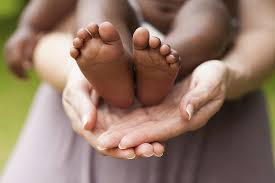In 2004 Chissano while bidding farewell s the then African Union chairman, he used the Swahili language even though it is not his mother tongue. Swahili spoken by more than 100 million people on the African continent is a lingua franca created from Arabic and several other languages and popular in countries like Kenya, Burundi, Tanzania, Rwanda, Central African Republic, some parts of Uganda to mention a few. Chissano was then the president of Mozambique and wanted to show other African leaders how important Africa’s identity is in regard to languages.
Is it time for Africa to prioritize African languages?
This is an interesting question because at the look of things, in all major official gatherings that take place on the continent including the Au summits, it is the foreign languages used as means of communication. Although effective communication is very important for such events, focusing on using African languages as the main means of communication should be highly considered for the sake of the future generations.
It should be noted that the languages used in the African union include; Arabic, Portuguese, French and English which act as the official languages in Africa simultaneously.
Speaking of future generations, it is very important that they inherit the kind of patriotism that includes the richness of Africa’s indigenous languages. Yes, richness because Africa alone has over 1000 languages with certain countries boasting of more than 80 at ago.
Zimbabwe should pat itself on the back for having several of its indigenous languages among its long list official languages and these include;
Therefore, more countries should borrow a leaf from Zimbabwe because listing the indigenous languages as official languages is a step to popularizing these languages.
Should we do away with foreign languages?
So I’m I saying the foreign languages should be done away with? Not at all because they make communication easier by bringing together almost all ethnicities that exist while at the same time maintaining the global village notion. In other words, foreign languages are great and useful and a uniting factor of Africa to the outside world and should be further encouraged but not meant to be a replacement for the African languages.
It should be noted that the foreign languages are those used mostly for official purposes and as the main languages of instruction in African Education institutions and were introduced during the scramble and partition of Africa in the 1800s.
In fact, at all times professional translation services should be highly considered when dealing with important events with parties speaking different languages. For example, at events like the AU, interpreters should be used to interpret from African languages and vice versa so as to build the African language legacy.
By Angela Kyolaba








